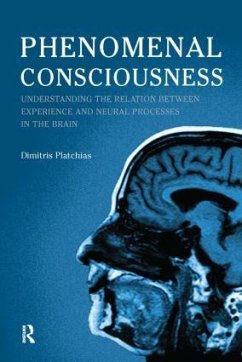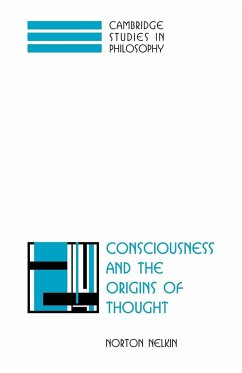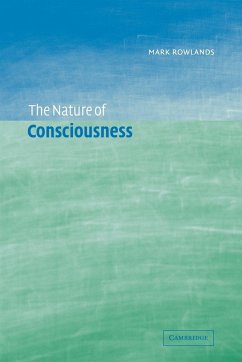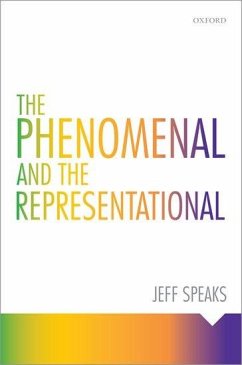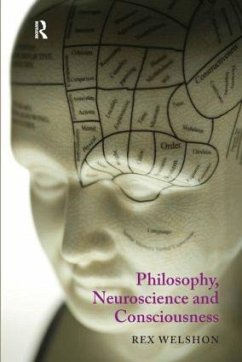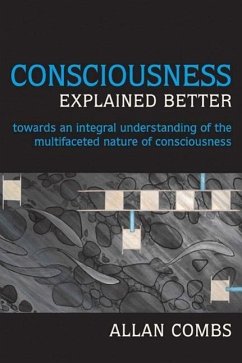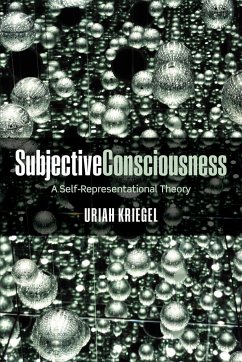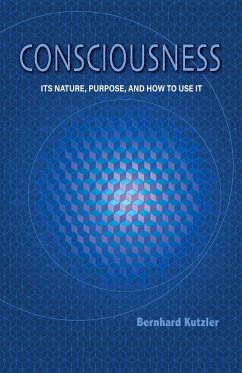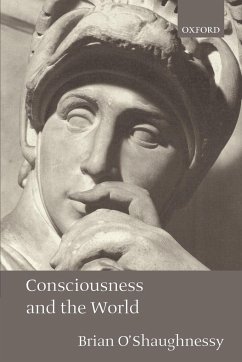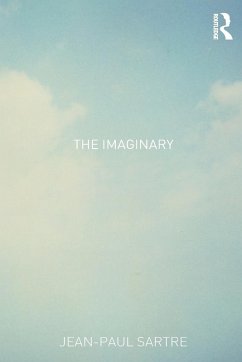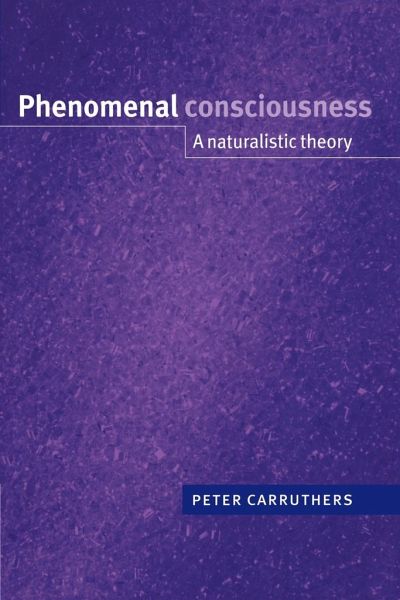
Phenomenal Consciousness
A Naturalistic Theory
Versandkostenfrei!
Versandfertig in 1-2 Wochen
47,99 €
inkl. MwSt.
Weitere Ausgaben:

PAYBACK Punkte
24 °P sammeln!
This study of consciousness develops and defends a novel account in terms of higher-order thought.How can phenomenal consciousness exist as an integral part of a physical universe? How can the technicolour phenomenology of our inner lives be created out of the complex neural activities of our brains? Many have despaired of finding answers to these questions; and many have claimed that human consciousness is inherently mysterious. Peter Carruthers argues, on the contrary, that the subjective feel of our experience is fully explicable in naturalistic (scientifically acceptable) terms. Drawing on...
This study of consciousness develops and defends a novel account in terms of higher-order thought.
How can phenomenal consciousness exist as an integral part of a physical universe? How can the technicolour phenomenology of our inner lives be created out of the complex neural activities of our brains? Many have despaired of finding answers to these questions; and many have claimed that human consciousness is inherently mysterious. Peter Carruthers argues, on the contrary, that the subjective feel of our experience is fully explicable in naturalistic (scientifically acceptable) terms. Drawing on a variety of interdisciplinary resources, he develops and defends a novel account in terms of higher-order thought. He shows that this can explain away some of the more extravagant claims made about phenomenal consciousness, while substantively explaining the key subjectivity of our experience. Written with characteristic clarity and directness, and surveying a wide range of extant theories, this book is essential reading for all those within philosophy and psychology interested in the problem of consciousness.
Table of content:
1. Assumptions, distinctions, and a map; 2. Perspectival, subjective, and worldly facts; 3. Explanatory gaps and qualia; 4. Naturalisation and narrow content; 5. First-order representationalism; 6. Against first-order representationalism; 7. Higher-order representationalism: a first defence; 8. Dispositionalist higher-order thought theory (1): function; 9. Dispositionalist higher-order thought theory (2): feel; 10. Phenomenal consciousness and language; 11. Fragmentary consciousness and the Cartesian theatre.
How can phenomenal consciousness exist as an integral part of a physical universe? How can the technicolour phenomenology of our inner lives be created out of the complex neural activities of our brains? Many have despaired of finding answers to these questions; and many have claimed that human consciousness is inherently mysterious. Peter Carruthers argues, on the contrary, that the subjective feel of our experience is fully explicable in naturalistic (scientifically acceptable) terms. Drawing on a variety of interdisciplinary resources, he develops and defends a novel account in terms of higher-order thought. He shows that this can explain away some of the more extravagant claims made about phenomenal consciousness, while substantively explaining the key subjectivity of our experience. Written with characteristic clarity and directness, and surveying a wide range of extant theories, this book is essential reading for all those within philosophy and psychology interested in the problem of consciousness.
Table of content:
1. Assumptions, distinctions, and a map; 2. Perspectival, subjective, and worldly facts; 3. Explanatory gaps and qualia; 4. Naturalisation and narrow content; 5. First-order representationalism; 6. Against first-order representationalism; 7. Higher-order representationalism: a first defence; 8. Dispositionalist higher-order thought theory (1): function; 9. Dispositionalist higher-order thought theory (2): feel; 10. Phenomenal consciousness and language; 11. Fragmentary consciousness and the Cartesian theatre.





